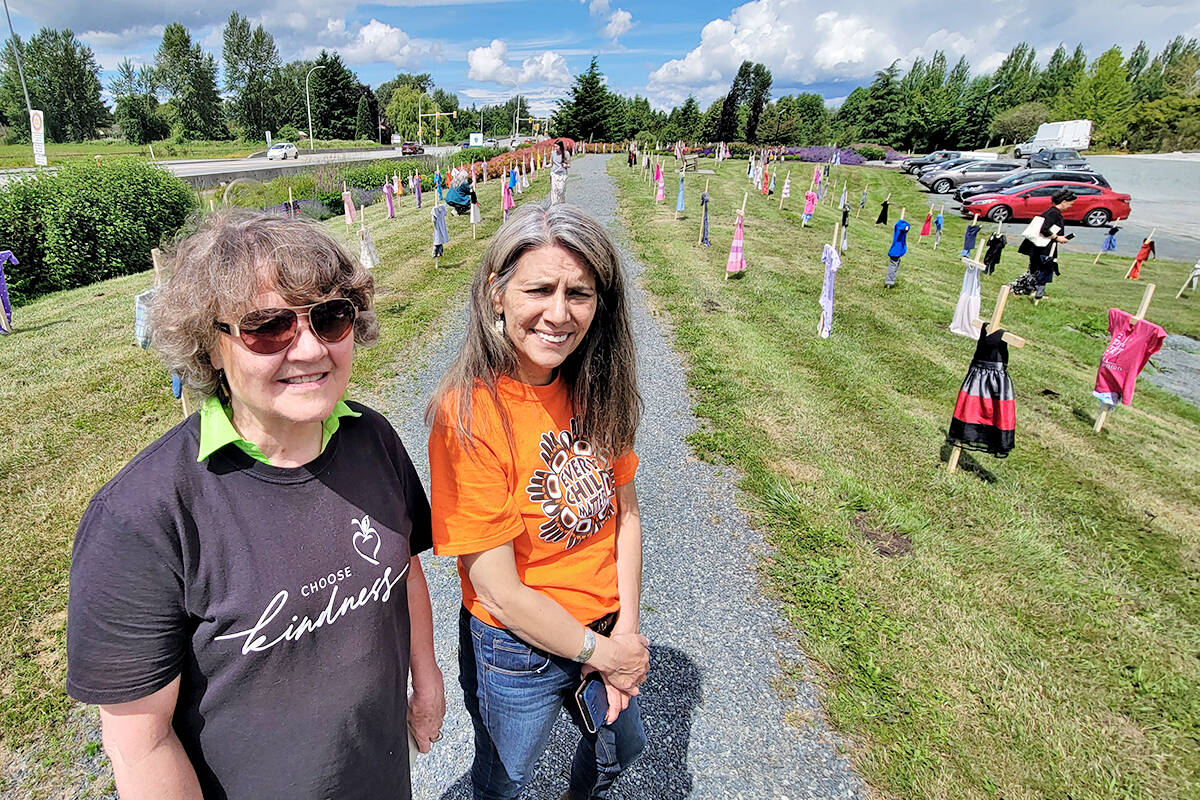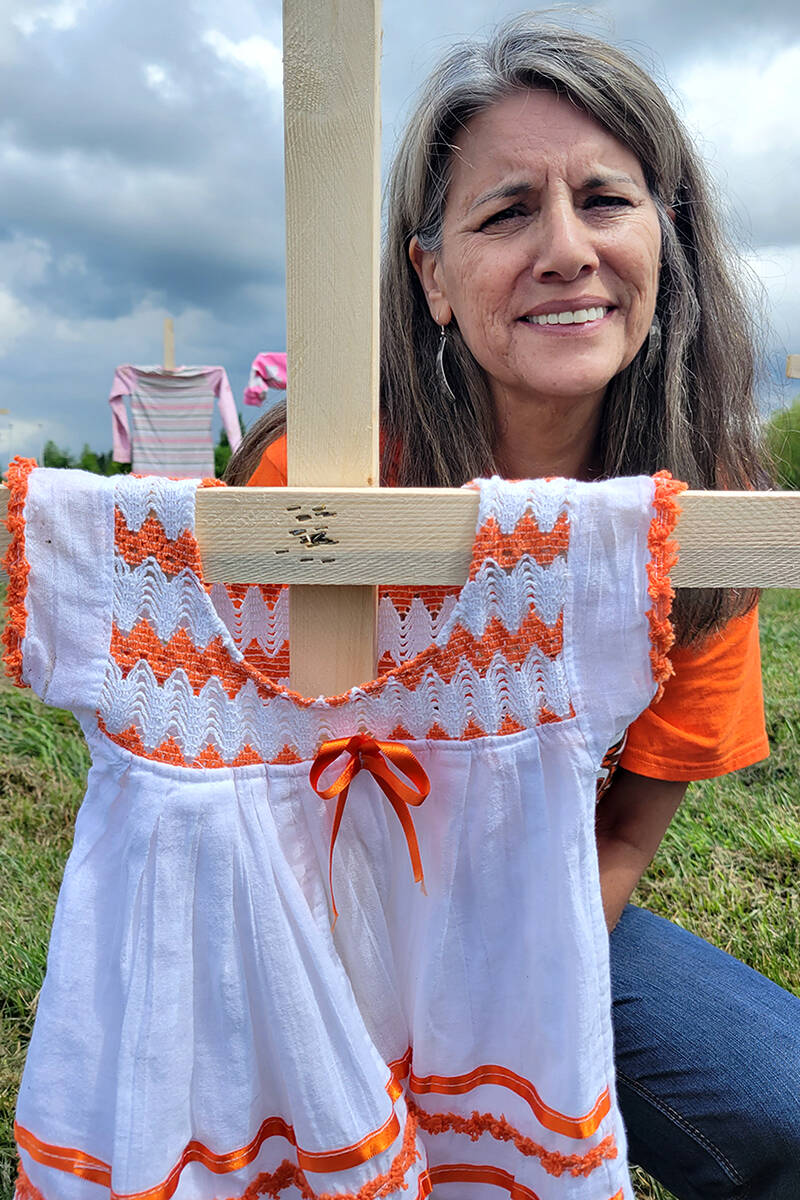A group seeking a permanent memorial to Canada’s residential school survivors asked Langley Township council to put aside space in a local park for the projects.
Cecelia Reekie said the group would like to create Ewolemetes té Lalem, which means “a place of understanding,” in the Derek Doubleday Arboretum on Fraser Highway.
“We are not asking for money,” Reekie said. “We will pursue funding in our own way, but we need a place, a place for a very special permanent installation to call home.”
In 2021, after the graves of approximately 215 children were found on the site of the Kamloops Residential Indian School, public attention was again drawn to the legacy of the schools, which were founded in the late 19th century and ran through most of the 20th century.
Tens of thousands of Indigenous children were taken from their families and placed in the residential schools, where they were forbidden from speaking their native languages. The children were also subject to physical and sexual abuse, mistreatment, malnutrition, and disease. It is unknown how many died in the schools, partly because the children’s families were not informed when a child died.
After the discovery of graves in Kamloops, more former residential school sites were investigated and hundreds more suspected graves were discovered, many of them previously unknown.
In Langley, Reekie and others organized a temporary memorial at the Derek Doubleday Arboretum, placing 215 wooden crosses, each decked with children’s clothing, to represent the children who had not come home from the Kamloops school.
The new project would be permanent, but there is no final design yet.
Local Kwantlen First Nation artists Drew and Phyllis Atkins are to work on a final design, but Reekie told the council they want to have a space first before deciding on what the Ewolemetes té Lalem will look like.
“Even to apply for grants, we need to say we have a place,” Reekie said.
Mayor Eric Woodward was receptive, and said he imagined the project would have strong support.
Township staff will work with the group on details of the land area and site before the summer break begins, he said.
The arboretum is already home to two other memorials – one to the Canadian soldiers lost in Afghanistan, and another commemorating the Battle of Gapyong, in which Canadians fought in the Korean War.
READ ALSO: VIDEO: 215 crosses go up in Langley to remember Kamloops residential school children
READ ALSO: Remains of 215 children found a former B.C. residential school an ‘unthinkable loss’
Have a story tip? Email: matthew.claxton@langleyadvancetimes.com
Like us on Facebook and follow us on Twitter.
IndigenousLangley Townshipresidential schools


